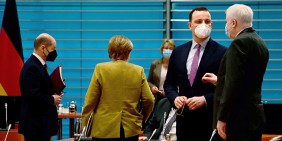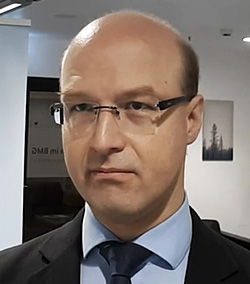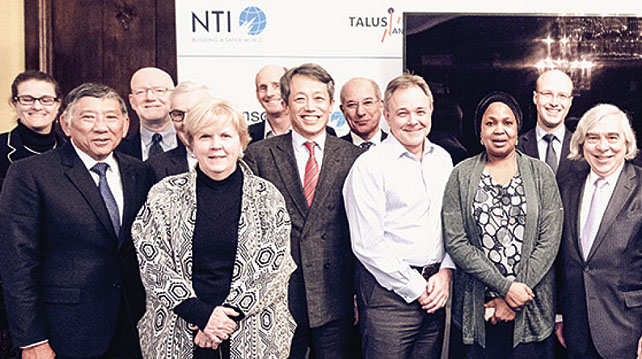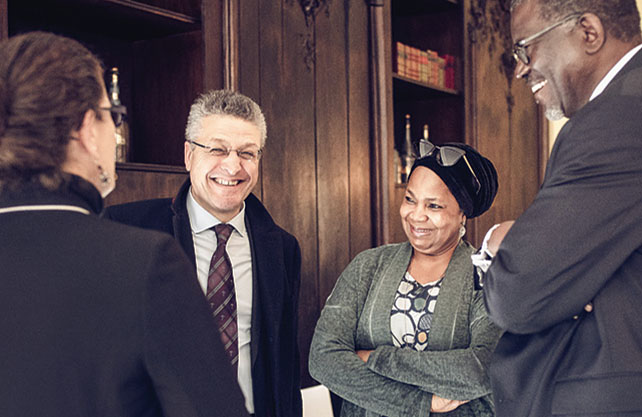
How the lockdown came to Germany
PAUL SCHREYER, 4. August 2021, 0 Kommentare, PDFNote: This article ist also available in German.
For a long time it was unclear how the previously unprecedented idea of a lockdown found its way into German government circles. Who recommended to the government the radical measures that are not found in any official pandemic preparedness paper? Where did the plans come from, including curfews and the shutdown of large parts of society?
In the spring of this year, the former Spiegel editor-in-chief Georg Mascolo shed some light on this darkness. In the book "Outbreak - Inside Views of a Pandemic", written together with his wife, Stern journalist Katja Gloger, the first pages describe what was discussed within the federal government after Italy - in the light of of five Corona deaths - on 23rd February 2020 adopted the Chinese model and cordoned off entire cities:
"It is February 24th, Shrove Monday, when Jens Spahn's State Secretary Thomas Steffen asks for an urgent appointment at the Federal Ministry of the Interior. (...) Heiko Rottmann-Großner accompanies him, Head of Subdivision 61: 'Health Security'. Minister Horst Seehofer's three state secretaries are already waiting for the two of them, along with other officials. (...) State Secretary Steffen looks tense. He admits that he does not believe that Corona can still be contained. (...) Now it was about going into the next phase, mitigation, damage control. When the officials from the Ministry of the Interior want to know what exactly 'mitigation' means, Rottmann-Großner takes over. Precautions must be taken to ensure that there are curfews of indefinite duration. One must also, as it will later be said in a note on the conversation, 'paralyze the economy and ask the population to stock up on food and medicines.' Something like this would soon be called 'lockdown', but on this Shrove Monday another word is being used: 'shutdown'."
In the extensive National Pandemic Plan of the Federal Republic of Germany from 2017, however, (here Part 1 and Part 2) there is no mention of such measures. It only recommends much more cautious steps, such as closing community facilities and restricting or banning large events. The pandemic plan takes a very differentiated view of school closures and only discusses them with numerous reservations. Closing borders is clearly discouraged. "Social distancing" in public with clearly defined distances (1.50 meters) is nowhere to be found as a recommendation, just as there are no curfews, let alone "paralyzing the economy".
So where did the unusually radical recommendations put forward by Rottmann-Großner come from? Had someone advised him in that direction? If so, who? When asked by Multipolar, the public servant kept a low profile. He was able to "basically understand" the interest, but could "not comment" on the passage of the book, which does not mean that he "would confirm the description in the book itself or could give further assessments". The question whether he would at least justify his silence on the matter and thus explain why no transparency is being established at this crucial point was left unanswered by him.
Who is Heiko Rottmann-Großner?
The ministerial official comes from the circles around Hildegard Müller, formerly a banker who switched to politics and a confidante of German Chancellor Angela Merkel’s. First, Rottmann-Großner headed Müller’s office in the German parliament, the Bundestag, then from 2005, after her promotion to State Minister in the Chancellery, he headed her office there, where Müller co-ordinated the Federation-Länder relations for the newly elected Chancellor. Müller, whose political rise was co-financed by the Dresdner Bank, belonged to the small group within the CDU, on which Merkel could "really rely", as the Spiegel gauged at the time.

After Müller’s exit from politics and turn to lobbyism, Rottmann-Großner continued his career under her successor Hermann Gröhe. He headed his office in the Chancellery as well as his office as CDU General Secretary. After Merkel made Gröhe Minister of Health in 2013, Gröhe promoted Rottmann-Großner to Head of Executive Staff of this ministry. When Gröhe had to make room at the beginning of 2018, after the federal election, under pressure from Chancellor Jens Spahn, Rottmann-Großner took up his current post as Head of the Subdivision for Health Security - a key position in the Corona crisis.
Even before the crisis, the term “Health Security” had been gradually loaded with meaning and administrative weight. While there was only a small section in the ministry in 2017, Spahn initially expanded this to a subdivision and finally even to a complete separate department - the highest administrative level in the ministry. This department was headed by a Bundeswehr general from March 2020 - a striking novelty in the Ministry of Health. Spahn mentioned in passing that the establishment of the department had already been planned at the end of 2019, i.e. before the crisis broke out.
A pandemic tabletop exercise in Munich in 2019
What has not been previously known: The same ministerial official who recommended the lockdown measures to the federal government in February 2020 had taken part as German representative in a high-level pandemic simulation game organized by privately financed US institutions in the previous year. There he met the "who's who" of the international biosecurity scene, a small group of lobbyists and experts who, since the global shock of the Trump presidency in 2017, had been strengthening their efforts, using a lot of sponsorship money, to warn of pandemics and bio-terrorism and to get political decision-makers from many countries around the world to participate in simulation games.
The best known of these exercises are "Event 201" in October 2019 in New York and "Clade X" in May 2018 in Washington. So far, little is known about the intervening tabletop exercise that took place in Munich on February 14, 2019, one day before the start of the Munich Security Conference. Rottmann-Großner, Spahn's sub-division head for “Health Security”, met key people from the international biosecurity scene there, people who are little known to the general public. Among them were:
-
Chris Elias, President of the “Global Development Division” at the Bill and Melinda Gates Foundation, responsible inter alia for “Vaccine Delivery”, also participant of Event 201
-
Tim Evans, co-founder of the vaccine alliance GAVI, former member of staff at the Rockefeller Foundation, part of the senior WHO management from 2003 to 2010, Director for Health, Nutrition and “Population Global Practice” at the World Bank from 2013 to 2019 – also participant of Event 201
-
Jeremy Farrar, Director of the Wellcome Trust (worth $30 billion), a British foundation for health improvement, similarly politically active and influential as the Gates Foundation; since 2017 Farrar and Elias have also been – together with Christian Drosten, members of a committee which advises the German Federal Government in matters of “international health politics”
-
Jeremy Jurgens, an American from the management level of the World Economic Forum, its Director of “Global Industries and Strategic Intelligence”

The image above show a section of the group panorama photo of the participants, taken from the final report of the exercise. You can see Elias (third from the left), Evans (sixth from the left, in the back), Farrar (fourth from the right) and Rottmann-Großner (second from the right). One of the main people responsible for planning the exercise, Beth Cameron, is on the far left.
Cameron, the Pentagon and the “Nuclear Threat Initiative”
Cameron is also a key figure in the scene. From 2010 to 2013 she worked at the Pentagon as Director of the department for “Cooperative Threat Reduction” and then moved to the National Security Council at the White House as Director for “Global Health Security and Biodefence”. This department, which was only created in 2016 under US President Barack Obama, was disbanded by Trump's Security Advisor John Bolton in 2018. Cameron subsequently switched to the private lobby group "Nuclear Threat Initiative" (NTI).
This group, founded in 2001 with the money of CNN founder and billionaire Ted Turner with the participation of former US Secretaries of State George Shultz and Henry Kissinger, initially campaigned primarily for a world free of nuclear weapons. In the subsequent years, however, the group expanded its field of work to include other types of security threats, including "biosecurity", i.e. the risk of bio-terrorism and pandemics. Cameron headed this area. The activities are financed by, among others, billionaire and Facebook co-founder Dustin Moskovitz (also one of the biggest financiers of the presidential election campaigns of Hillary Clinton and Joe Biden) and Bill Gates.
NTI was chaired by former US Senator Sam Nunn, who headed the Senate's powerful Defense Committee from 1987 to 1995. As chairman of the committee, he exerted great influence over the nuclear disarmament of the successor states of the Soviet Union in the early 1990s. Formally, in his Senate function, he represented parliamentary control over the Pentagon, but in reality Nunn, husband of a CIA agent, was at an extremely delicate interface - between the democratic surveillance of the military on the one hand and the interests of the generals and the armaments industry on the other. Nunn had also taken part in the “Dark Winter” bioterrorism simulation game in June 2001 and played the US President there.
The NTI was also behind the pandemic simulation game in Munich in February 2019. The US politician personally took part. It becomes clear that when it comes to biosecurity and health security, there is a close personal relationship with the US military and the American security apparatus. “Securing global health” is a term that also conceals power interests and the struggle for international influence. It is fitting that Beth Cameron, one of the organisers of the simulation game, was re-appointed director of the “Global Health Security” department in the National Security Council, which was re-activated under President Biden, two years later in January 2021.
Bill Gates as inspiration
The tabletop exercise in Munich was apparently inspired by Bill Gates, who declared at the Munich Security Conference in 2017 that "the next epidemic could arise on the computer screen of a terrorist who uses genetic engineering to create an extremely contagious and deadly influenza virus." One must therefore “prepare for epidemics like the military for a war.” This included simulation games (Gates: "Germ Games") and other emergency exercises. In the final report of the 2019 exercise, Gates' speech at the time was quoted verbatim: "We ignore the link between health security and international security at our own peril." (PDF, p. 3)
Pneumonic plague as a bioweapon
In Munich, February 2019, it was about a pneumonic plague pandemic, the pathogen of which, according to the scenario, had been deliberately spread and led to "flu-like symptoms" and rapid death. The pathogen spread through the air. In their final report, published a few months later in June 2019, the organisers of the simulation game came to the usual recommendations: more international co-operation, closer co-ordination and central co-ordination are appropriate in an emergency. This automatically always meant a leading role for the USA in the event of a pandemic, pressing ahead with all the planning.
The script of the exercise dealt with bio-terrorism, but natural pandemics were also taken into account, as one spoke more generally of “high-consequence biological events”. The report said about the fictitious course of the crisis:
„With cases spreading to Europe and the United States, the WHO declares a Public Health Emergency of International Concern, and the Prime Minister of Vestia [the fictional country] asks the United Nations Secretary-General for an investigation into alleged use of a biological weapon. As the scenario progresses, the agent is sequenced [according to the script by the RKI, the German federal government agency and research institute for disease control and prevention; P.S.] and found to be genetically engineered and antibiotic resistant. The scenario ends with a terrorist group claiming responsibility and intelligence reports linking that group to a potential state sponsor. The complex scenario was developed, in part, to resemble recent experiences related to the use of chemical weapons in Syria and past and ongoing Ebola crises.“
Confidential talks
What exactly the participants in the exercise in Munich discussed with each other is not known. According to the final report, the event took place under the so-called “Chatham House Rule”, which also applies to the Bilderberg meetings, for example, and according to which those present commit to maintaining secrecy about who said what. The aim is to enable an exchange that is as open as possible. It is therefore unclear what kind of conversations Spahn's official exactly had there.
In any case, the event created the framework for getting to know each other personally and for making connections that could be subsequently used. It can be assumed that since February 2019 at the latest, Rottmann-Großner has had a personal connection to people like Chris Elias, Tim Evans, Jeremy Farrar or Beth Cameron - all of them functionaries who can be counted among the global leadership circle of "Pandemic Preparedness". It is reasonable to assume this connection because, according to the wishes of these actors, Germany was to take on an international “leadership role” in “global health” policy. Chris Elias from the Gates Foundation, Jeremy Farrar from the Wellcome Trust, Christian Drosten and the other members of the above-mentioned international advisory group of the Federal Government put this very frankly in June 2019:
„The mantra we articulated to our German counterparts was “be ambitious”. We expect a lot from Germany, which ranks fourth in the world as a leading economic power and which – as stated by its leaders – needs to take on greater global responsibilities. We believe global health to be an ideal arena where German values, capacities and determination could unite in strong support for human rights, multilateralism, humanitarian action and sustainable development. Of course, we want Germany to do even more – especially in the political arena, in development finance and in its support for global institutions, most notably the WHO. We believe an ideal moment could be the 2020 EU presidency. (…) We very much hope that our work will contribute to a strong new phase of German leadership on global health. Public health, Germany and the world will benefit greatly from it.“
Also in the mix: Lothar Wieler
Rottmann-Großner was apparently one of the contact persons for this, among several. In any case, he was not the only representative of Germany at the tabletop in Munich. It is not mentioned in the text of the published final report, but it can still be seen on a photo contained therein: RKI President Lothar Wieler was also present. You can see him there joking with the organizer Beth Cameron (left in the picture; source: final report, p. 5).

Wieler apparently belonged to a small group of observers who did not actively participate in the simulation game, but did so as a spectator - which is also evident in another picture of Wieler, in which Wieler sits next to Cameron and directly behind the moderator, NTI co-chair Ernest Moniz, a former minister under Bill Clinton.
Wieler, who is known to the public as the fatherly crisis manager and who is often ridiculed by critics as an apparently less than competent veterinarian, is far better connected than is generally known. According to the book by Mascolo and Gloger mentioned above, Wieler and the head of the Federal Intelligence Service are "old friends" (p. 21). The RKI President and the one year younger BND President Bruno Kahl “have known” each other “since university days” and “row together on Wannsee lake [in Berlin] to this day, eight with cox”.
Wieler also plays a role internationally. In June 2019, just a few months after the tabletop exercise in Munich, he was appointed co-chair of the WHO “Working Group on Influenza Preparedness and Response”. In September 2020, he was also raised to the head of the “International Health Regulation Review Committee” and thus to a politically extremely explosive key position, especially with a view to the “International Pandemic Treaty” currently in planning.
Pandemic tabletop exercises in December 2019 and February 2020
Germany's “stronger leadership role” has been actively promoted. The exercise in Munich in February 2019 was only one aspect. Three months later, in May 2019, the CDU / CSU parliamentary group chaired a conference on “Global Health” and “Cross-Border Health Risks”, in which, in addition to Farrar and Drosten, Merkel and Spahn and WHO chief Tedros also took part (video clip here). Immediately before the outbreak of the Corona crisis, this was followed up with a pandemic simulation game in New York in December (!) 2019, which was mentioned only in passing in a later NTI report, describing it as follows (PDF, p. 9):
„This version of the exercise included a deeper dive into deterrence and prevention of catastrophic biological risks posed by potential state-sponsored bioweapons research, to include accidental and deliberate release of biological weapons.“
One would like to know more about that, especially given the remarkable timing. However, only a list of participants (PDF, p. 24) was published for this New York simulation game. This list includes, among others, the "Event 201" player, ex-Vice-CIA boss and current director of the US secret services Avril Haines.
According to NTI, the New York exercise served to prepare for another bioterrorism simulation game in Munich, again as part of the Munich Security Conference, which took place in the following year 2020, from February 14th to 16th - exactly while the real Corona virus was spreading in Asia. According to the script, this time it was about an influenza virus that was activated in a laboratory and subsequently infected several billion people. There is a short report by the organisers as well as a detailed final report for this exercise. However, no one from German politics was invited to this simulation game. It is not known whether Wieler or other representatives of the German authorities took part as observers.
Ten days later, Heiko Rottmann-Großner recommended to the Federal Ministry of the Interior the introduction of lockdown measures in Germany. Who familiarised him with this idea remains open.
Further reading:
- Clade X – A bioweapon for population reduction (Paul Schreyer, 8 March 2021)


Diskussion
0 Kommentare